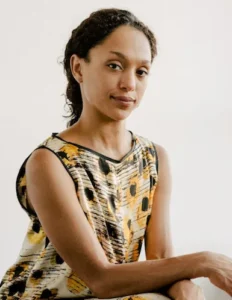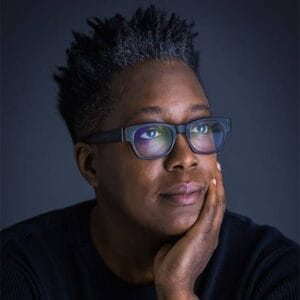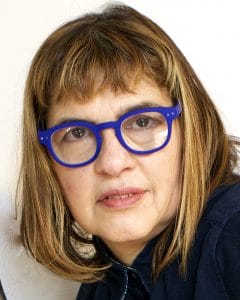In an arts landscape where BIPOC, trans, and queer creatives still fight for equitable recognition, Queer|Art continues to push for it. With the announcement of its 2025 judges for the Illuminations Grant for Black Trans Women Visual Artists and the Barbara Hammer Lesbian Experimental Filmmaking Grant, the organization is once again centering those most marginalized not only as recipients, but as decision-makers.
Now in its fifth year, the Illuminations Grant is more than a cash award—it’s a from of affirmation and professional visibility for Black trans women visual artists. The 2025 panel features three formidable voices across curatorial, community, and creative spaces: Legacy Russell, Jordyn Jay, and Lee Laa Ray Guillory. Their selection isn’t just symbolic. It’s strategic.

Russell, the Executive Director and Chief Curator of The Kitchen and author of Glitch Feminism and BLACK MEME, has carved out a necessary space at the intersection of race, gender, and digital culture. Her work critiques how Blackness and queerness are both consumed and constructed online. With her curatorial rigor, Russell brings a sharp lens to how we archive, spotlight, and materially support trans and nonbinary artists of color.

Joining her is Jordyn Jay, founder of the Black Trans Femmes in the Arts Collective (BTFA). A staunch advocate for Black trans liberation through art, Jay understands firsthand the systemic barriers trans femmes face in trying to sustain creative careers. Her leadership centers art as a vehicle for both cultural transformation and personal survival.

Guillory, whose ritual-based, photo-forward practice is steeped in Black mysticism and southern spiritual traditions, rounds out the panel. Based in New Orleans, she uses self-portraiture and ancestral veneration to explore intersectional identity through an experimental, immersive lens—offering intimate insight into what it means to create from the margins while grounded in heritage.
Together, these three judges not only reflect a commitment to Black trans brilliance—they are a reimagining of power in action.
The Barbara Hammer Grant, now in its seventh year, mirrors this vision of queer futurity. It supports lesbian experimental filmmakers continuing the legacy of Hammer, whose genre-defying work centered desire, death, and queer life in all its complexity. The 2025 judging panel is a powerhouse of interdisciplinary talent: A.K. Burns, Cheryl Dunye, and Ela Troyano.

Dunye, the iconic Liberian-American filmmaker behind The Watermelon Woman—the first feature directed by a Black lesbian—has made her mark both in independent film and mainstream TV. Her commitment to platforming Black queer characters, especially in projects like Black is Blue, has paved the way for generations of LGBTQ+ storytellers to be seen in their full complexity.

Burns, is a New York-based visual artist and educator. Working across video, installation, sculpture, drawing, and collaboration, Burns interrogates systems of value and the body’s role within them—exploring where language meets materiality. Her/Their work has been exhibited internationally at institutions like the New Museum, Palais de Tokyo, MMK Frankfurt, and the Harvard Art Museums. A founding member of W.A.G.E., Burns co-created Community Action Center (2010) with A.L. Steiner, a queer feminist reimagining of pornographic cinema. Recent honors include the Berlin Prize, Guggenheim Fellowship, and Creative Capital Award.

Troyano, a Cuban-born filmmaker rooted in downtown NYC’s avant-garde scene, blurs the boundaries of performance and film. Her guerrilla aesthetic, shaped by her Latina identity and diasporic roots, challenges colonial narratives and reinserts queer women of color into the cinematic archive.
What makes this year’s lineup of judges revolutionary isn’t just their resumes—it’s the deliberate choice to ensure that those assessing artistic excellence are artists and thinkers who embody it themselves. In a time when institutions still tokenize or sideline queer artists of color, Queer|Art is doubling down on community-led curation and intersectional leadership.
As applications open through July 2nd, these grants reaffirm what many of us already know: Black, trans, lesbian, and queer women have always been visionaries. They don’t just need support. They need platforms. Queer|Art is making sure they have both.
To apply or learn more about these grants, visit:













